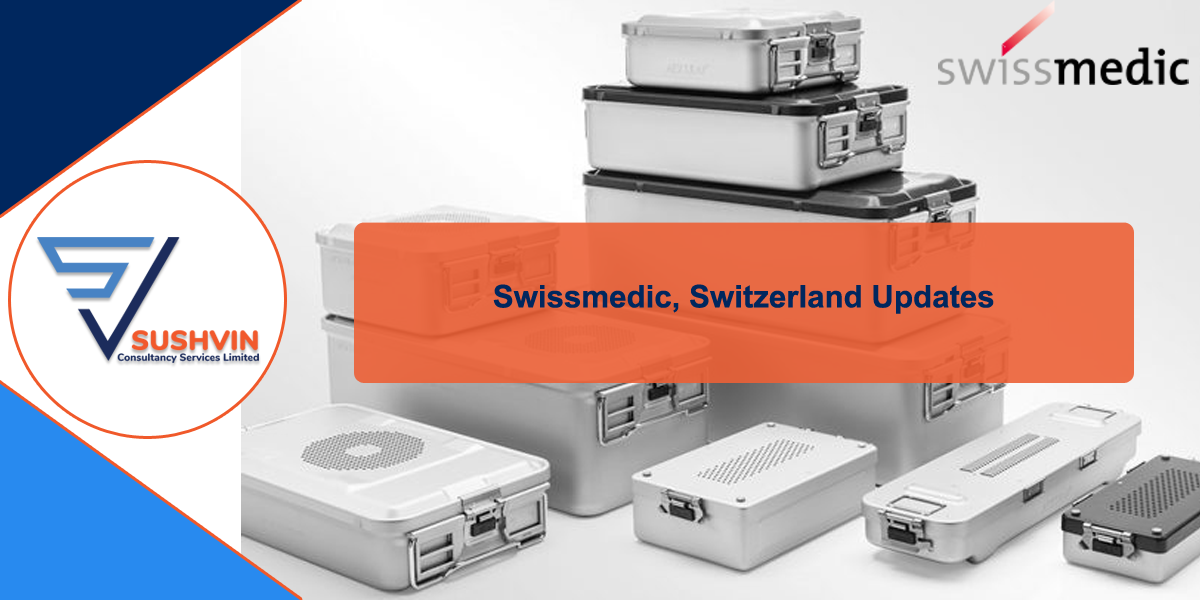MHRA Update: New Rules for Class I & CE-Certified Devices

The Medicines and Healthcare products Regulatory Agency (MHRA) has published new guidance on the registration of certain medical devices, including reusable Class I devices, unclassified Class I devices, and devices reliant on expired/expiring CE certificates. This guidance, published on 17 February 2025, is essential for manufacturers to ensure compliance with the latest regulatory requirements.
Key Highlights:
Reliance on Extended Certificates in Great Britain (GB): Guidance on the reliance on extended certificates in GB.
Reliance on Extended Certificates in Northern Ireland (NI): Information on the reliance on extended certificates in NI.
Previously Expired Certificates: Details on certificates that expired on or after 20 March 2023.
Up classified Class I Medical Devices and Class I Reusable Surgical Instruments: Guidance on up classified devices and reusable surgical instruments.
Extended Validity Dates: Information on extended validity dates for certain certificates.
For more detailed information, you can access the full document here
MHRA UK UPDATE: Guidance on Regulating Medical Devices
The Medicines and Healthcare products Regulatory Agency (MHRA) has released updated guidance on regulating medical devices in the UK. This comprehensive guidance outlines the necessary steps to place medical devices on the markets in Great Britain, Northern Ireland, and the European Union (EU).
Key Highlights:
This guidance is essential for manufacturers and stakeholders to stay informed and compliant with the evolving regulations in the medical devices sector.
For more detailed information, you can access the full document here: Regulating medical devices in the UK - GOV.UK
Exciting Update from MHRA!
The MHRA has published its response to the consultation on Medical Devices Regulations: Assimilated EU Law. This consultation, which ran from 14 November 2024 to 5 January 2025, received 287 responses from various stakeholders, including medical device suppliers, healthcare professionals, trade associations, and individuals.
The majority of respondents agreed with the government's proposal to remove the revocation date of four specific pieces of assimilated EU law. This means that these laws will continue to apply in Great Britain until they are replaced with updated UK law, ensuring continuity for manufacturers and users of medical devices.
The government emphasized that this approach would avoid disruption to the regulatory framework and maintain stability in the medical devices sector. Other consultation proposals, which are not as time-sensitive, will be addressed separately in due course.
For more details, you can read the full response here.
What are the key implications of MHRA's response?
The MHRA's response to the consultation on Medical Devices Regulations: Assimilated EU Law has several key implications:
These implications highlight the MHRA's efforts to balance regulatory continuity with the need for modernization and innovation in the medical devices sector.
ReferenceEuropean Updates

MEDTACH EUROPE: EU HTA Regulation and Harmonised Assessment for Digital Medical Devices (DMD)
MEDTACH EUROPE has released a reflection paper by a community of Digital Health and Artificial Intelligence experts on the EU HTA Regulation and Harmonised Assessment for Digital Medical Devices (DMD), including AI.
Executive Summary:
Despite the promise of digital health technologies to transform healthcare, their adoption in clinical practice remains very limited. The regulatory environment is still developing, and coverage decisions are often lacking or incomplete.
The focus of this reflection paper is on a subset of digital health technologies referred to as digital medical devices (DMD), which require CE-marking according to the Medical Devices Regulation (MDR) and In Vitro Diagnostic Medical Devices Regulation (IVDR) to gain marketing authorization in the EU.
Key Insights:
This highlights the need for continued work to define digital health technologies, develop a comprehensive taxonomy, and create standardized evaluation frameworks. For more detailed information, you can access the full document here
EU Commission Publishes New Regulation on Plastic Materials and Articles
The EU Commission has published Commission Regulation (EU) 2025/351, adopted on 21 February 2025, which introduces several amendments to existing regulations concerning plastic materials and articles intended to come into contact with food.
Key amendments include:
This regulation amends Regulation (EU) No 10/2011 on plastic materials and articles intended to come into contact with food, Regulation (EU) 2022/1616 on recycled plastic materials and articles intended to come into contact with foods, and Regulation (EC) No 2023/2006 on good manufacturing practice for materials and articles intended to come into contact with food. It also repeals Regulation (EC) No 282/2008.
The implementation date for these amendments is set for 16 September 2026. For more details, you can read the full regulation here.
Electronic Instructions for Use (eIFU)
The European Commission has published a draft amendment to Implementing Regulation (EU) 2021/2226, focusing on electronic instructions for use (eIFU) for all medical devices used exclusively by healthcare professionals.
Key Highlights:
This amendment aims to enhance the accessibility and efficiency of medical device instructions while maintaining safety and compliance.
Exciting news from the Medical Device Coordination Group (MDCG)!
Revision 5 of MDCG 2019-06 Questions and Answers: Requirements relating to notified bodies has just been published.
Key Highlights:
This revision, dated February 2025, is essential for all stakeholders in the medical device industry to ensure compliance with the latest requirements. For more detailed information, you can access the full document here:
ISO Update
The latest ISO update for February 2025 covers the period from 01 January to 01 February 2025. This update includes a list of committee drafts (CD) registered, draft International Standards (DIS) circulated, final draft International Standards (FDIS) circulated, and standards published, confirmed, and withdrawn for the given period.
Key Highlights for Medical Devices:
Staying updated with these standards is crucial for ensuring compliance and maintaining the highest quality in the medical devices sector. For more detailed information, you can access the full document here:
Sushvin Provides UK Responsible Person (UK RP) Services
Are you a legal medical device/IVD manufacturer located outside the UK and would like to market your product in the UK, then you will require a UK responsible person who will act on behalf of the manufacturer to ensure all the responsibilities detailed within the updated UK MDR 2002 regulations are met.
As a legal manufacturer, organisations will have to register their devices prior to be placed on the UK market.
If you need UK Responsible Person (UK RP) services, please contact SUSHVIN for more information.
Sushvin Provides PRRC (Person Responsible for Regulatory Compliance) Services If you are planning to market your product in the EU and if you require PRRC (Person Responsible for Regulatory Compliance), we have a team of experienced regulatory professionals who can help you assist with PRRC services and get you regulatory compliant as per MDR 2017/745 and IVDR 2017/746
If you need PRRC Services, please contact SUSHVIN for more information.
Swissmedic Updates

Swissmedic: Assessment of Post-Market Surveillance Documentation
Swissmedic has recently conducted an assessment of post-market surveillance (PMS) documentation for medical devices. This assessment is crucial for ensuring the safety and effectiveness of medical devices in the market.
Key Highlights:
This assessment underscores the importance of robust post-market surveillance systems to capture information on the use of medical devices and ensure their ongoing safety and effectiveness. For more detailed information, you can access the full document here:
Canada Updates

Health Canada Issues New Guidance on Submitting Risk Management Plans
Health Canada has released a new guidance document on submitting risk management plans, issued on February 24, 2025, and set to take effect on July 1, 2025.
Key highlights of the guidance include:
These improvements reflect Health Canada's commitment to clear, updated practices and incorporate feedback from stakeholders, including consultations on the agile licensing project. For more details, you can read the full guidance document here.
Health Canada Publishes Pre-Market Guidance for Machine Learning-Enabled Medical Devices (MLMD)
Health Canada has released new pre-market guidance for medical devices that use machine learning (ML), known as machine learning-enabled medical devices (MLMD). This guidance is crucial for manufacturers to understand and comply with the regulatory requirements for MLMD under the Food and Drugs Act and associated Medical Devices Regulations.
Key Highlights:
Transparency is essential for device safety and effectiveness.
Predetermined Change Control Plan (PCCP): Introduces the concept of a PCCP to address cases where regulatory pre-authorization of planned changes to ML systems is needed to mitigate known risks.
Terms and Conditions (T&Cs): Suggests including T&Cs on medical device licenses to strengthen the ongoing safety and effectiveness of marketed MLMDs.
Health Canada has adopted the MLMD terms and definitions used by the International Medical Device Regulators Forum (IMDRF).
Manufacturers are encouraged to review the IMDRF document for comprehensive information.
For more detailed information, check out the guidance here document
